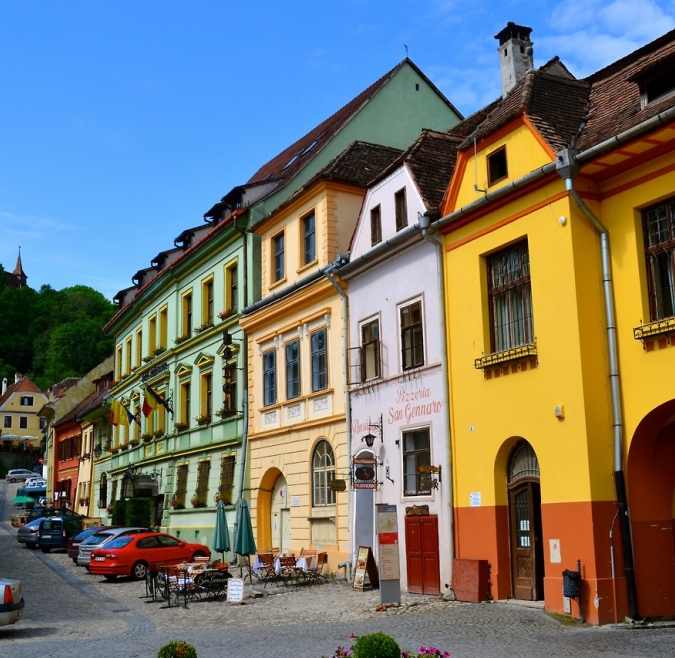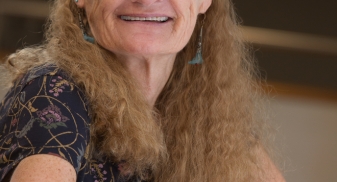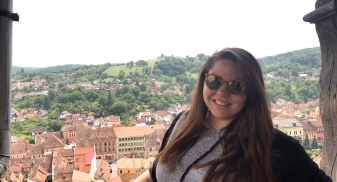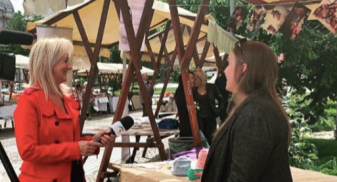Summer: Rutgers- Romania's Revolution: Community Care for Vulnerable Groups in Romania
The Program
Explore community-based care models, and how they are addressing vulnerable populations in Romania amid a climate of social and political change.
Graduate students can earn 3-credits of field hours through service learning placements with local social welfare agency, where you will engage in meaningful work with professionals caring for the city’s most vulnerable populations. Undergraduate students will earn 6-credits.
Program Locations

Romania
Cluj-Napoca
Cluj-Napoca, commonly known as Cluj, is Romania’s fourth largest and is considered the capital of the region of Transylvania. It is home to Babes-Bolyai University, which boasts an enrollment of nearly 50,000 students, making Cluj a lively university town with a thriving visual arts scenes and a busy nightlife. Architectural highlights include the Gothic St Michael’s Church and the Baroque Bánffy Palace, home to the National Museum of Art.
Academics
To view a sample syllabus for this program, please click here. Please note, as a sample syllabus all contents are subject to change.
This global service learning experience provides students the opportunity to study and learn first-hand about the profession of social work and social services within the Romanian and European contexts. Students will complete a guided internship with a community-based social service agency, working with a range of vulnerable groups including children, adults with disabilities, at-risk adolescents, children who have been abused and/or neglected, adults with mental illness, children with autism, and the elderly. Some of the field placement will be done, side by side, with a Romanian social work student and/or a visiting European social work student.
As part of their coursework, students will engage in reflective seminars with Romanian social workers, students, and professors. Students will learn about the evolution and status of social work in Romania (educational requirements, legislation, standards of practice, and regulation). And parallel to learning about social work, students will learn about the evolution of the public and private (non-profit) social services system in Romania, from the post-Revolution years beginning in 1990 to the present. Of special interest is the establishment and growth of the non-profit sector and its role in the delivery of social services and the growth of democracy through advocacy and empowerment. European and global comparisons about social work and social services will be highlighted. Students will expand their conceptual frameworks and vocabulary to incorporate global standards and practices.
Students will be hosted for their service learning (practicum learning) by one-two organizations partnered with Rutgers and Babes-Bolyai University. Potential service placements include (but are not limited to):
- Fundatia Pentru Ingrijirea Varstnicului (Foundation for Elderly Care Day Center) – Clinical counseling and psychoeducational groups with art, music, drama, dance, crafts, yoga, etc.
- Asociația Familia Regăsită (Afterschool Program for Children - Psychoeducational)
- Asociatia Autism Transilvania (Clinical rehabilitation and education Program for children on the Autism Spectrum)
- Romania Foundation for Children, Communities, and Families (FRCCF)-Afterschool Program for Children and Youth
- Centre de Zi Sf. Maria (St Maria Day Center for Adults Living with Disabilities (Psychoeducational & recreational groups with art, music, dance, sports, crafts, yoga, etc.)
- Serviciul de Ajutor Maltez in România (Maltese Social Services in Romania Kindergarten for Children with Special Needs)
For information about Study Abroad credit transfer, registration, and transcripts please visit the Academics section of our website.
Excursions
The program itinerary includes one planned group excursion, designed to enhance student learning about the history, culture, and contemporary society of Romania. Past excursions have included visits to Dracula’s Castle, a Bear Sanctuary, and surrounding towns and villages.
Housing and Meals
Students will stay in university housing at Babes-Bolyai University. Accommodation will be double occupancy rooms. Students are responsible for their own meals. A small set of kitchen appliances, such as a mini-fridge and hotplate, are available, and the in-country orientation includes a trip to a grocery store where students can purchase dishes and utensils. Most students opt to take the majority of their meals at local cafes and restaurants.
Financial Information
Program Costs
| NJ Resident | non-NJ Resident | |
|---|---|---|
| Undergraduate (6 credits) | $2,620 | $3,290 |
| Graduate (3 credits) | $2,530 | $2,850 |
Program Cost includes:
• Tuition
• Housing
• Excursions
• Administrative Fees
• Emergency Medical Access Abroad
Out-of-Pocket Costs
| Airfare | $1,200 |
| Meals | $300 |
| Books and Classroom Materials | $50 |
| Personal Expenses | $200 |
| Total | $1,750.00 |
Out-of-Pocket Cost includes:
The above costs are estimations and represent the known out-of-pocket costs students encounter during their time abroad.
Some of these expenses will be paid for prior to going abroad, such as an airline ticket and visa costs, while some of these expenses, such as meals and local transportation, will be paid in-country as part of your daily expenses. As you plan, you will need to budget these costs and spend wisely throughout your time abroad.



